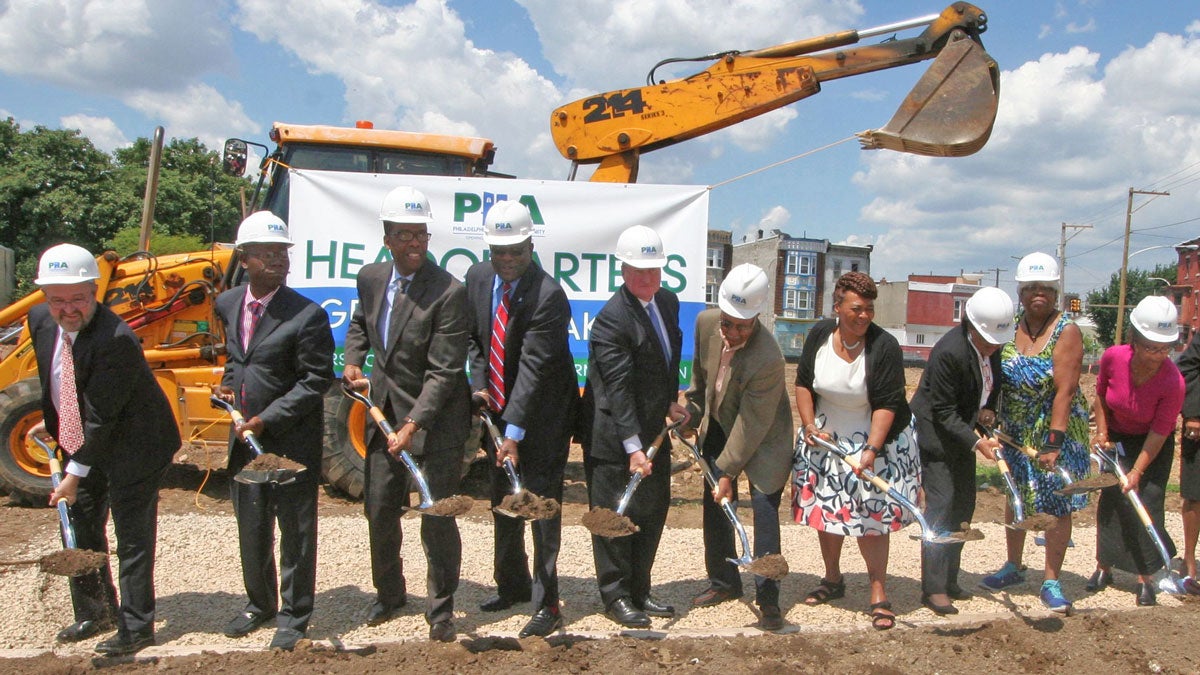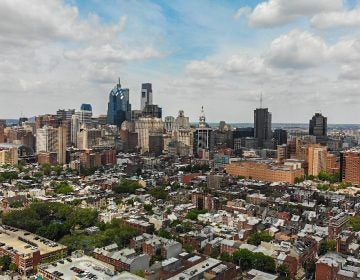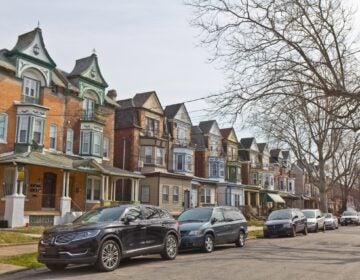Philadelphia Housing Authority relocating headquarters to North Philly

PHA is investing $45 million into its headquarters on Ridge Avenue as a part of the Sharswood/Blumberg Transformation plan. Today was the groundbreaking. (Photo courtesy of PHA)
The Philadelphia Housing Authority will soon be moving its headquarters from Center City to North Philadelphia.
On Wednesday, beneath a long white tent behind Ridge Avenue, agency and elected officials hailed the project as the biggest economic investment in the neighborhood since Progress Plaza — the country’s first African-American owned and operated shopping plaza — opened in the 1960s.
The $45 million project was also held up as a catalyst in a section of the city that’s long been one of the poorest and most crime-ridden.
“This is a real shot in the arm for this neighborhood,” said City Council President Darrell Clarke during a late-morning groundbreaking ceremony. “This is going to be special.”
The five-story building will house more than 1,200 PHA employees, as well as a café and retail space. Construction is expected to take a little more than a year.
The property will anchor a stretch of Ridge Avenue that the agency wants to revitalize as part of a $500 million neighborhood transformation plan.
“The workers who build this structure will frequent these places of business, the employees that fill the halls after completion will continue visiting those businesses,” said Mayor Jim Kenney. “This building will also continue beautification and restoration efforts and make the corridor even more inviting.”
That’s part of the reason why PHA decided to relocate its headquarters in the first place.
“We did not just want to do the transformation, but we wanted to be a part of the transformation that the community wanted to see,” said President Kelvin Jeremiah.
A Save-A-Lot discount grocery store, which inked a deal with PHA last summer, will soon open next door to PHA’s new headquarters.
PHA recently purchased the former home of Roberts Vaux High School. The hulking building will reopen as a new high school in September after shuttering in 2013.
In March, the agency demolished most of the Norman Blumberg Apartments in Sharswood to make way for hundreds of new townhome-style public housing units.
The entire transformation plan is expected to take a total of 10 years.
WHYY is your source for fact-based, in-depth journalism and information. As a nonprofit organization, we rely on financial support from readers like you. Please give today.





